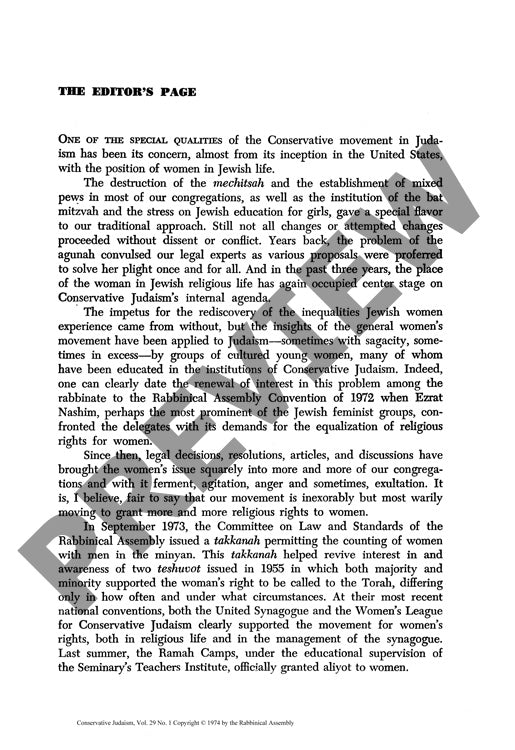The Editors Page
Couldn't load pickup availability
This editorial examines the evolving position of women in Conservative Judaism, tracing the movement's progressive approach to gender equality from its inception in the United States through the early 1970s. The analysis employs historical documentation and observational methodology to chronicle key developments, including the elimination of the mechitsah, establishment of mixed seating, institution of bat mitzvah ceremonies, and enhanced Jewish education for girls. The study identifies the 1972 Rabbinical Assembly Convention, where the feminist group Ezrat Nashim presented demands for religious equality, as a pivotal moment catalyzing renewed rabbinical engagement with women's issues. Findings indicate significant institutional progress, including the 1973 takkanah permitting women to be counted in the minyan, official support from the United Synagogue and Women's League, and adoption of expanded religious rights for women in over 200 congregations within three years. The research reveals that while implementation varies across communities due to rabbinical or lay opposition, the women's issue has stimulated broader congregational discourse about Conservative Judaism, change, and Jewish law. The study concludes that the movement is inexorably but cautiously advancing toward granting greater religious rights to women, though notes the need for deeper exploration of the sociological and psychological implications of these changes on personal and family life.

More Information
-
Physical Description
-
Publication Information
Published 1974
ISBN
-
Publication Credits
Stephen Lerner

